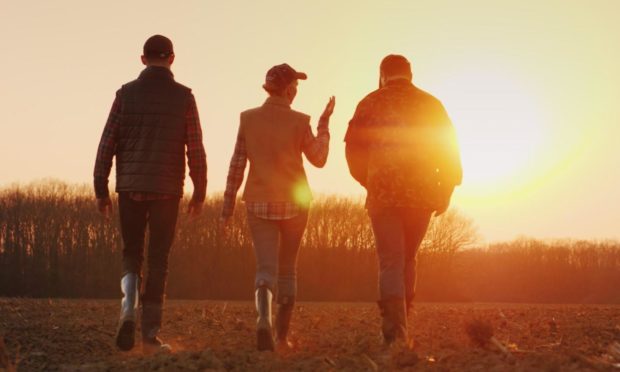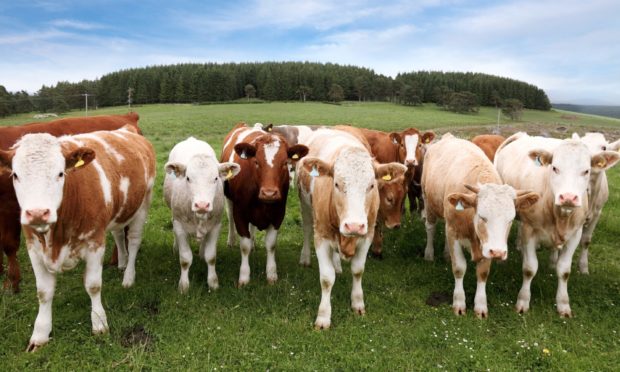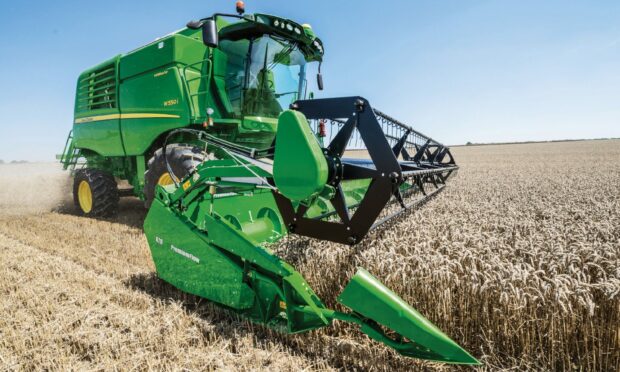Like the rest of rural Scotland, we were all sad to miss the usual hustle and bustle of the Royal Highland Show live at Ingliston although the online format allowed first timers and an international audience to view some of the great livestock Scotland has.
The team at RHASS should be applauded for managing to provide an excellent showcase under the circumstances.
To mark the occasion, Scottish Land and Estates (SLE) hosted a series of virtual events and podcasts available now on our website, focusing on conversations with those who influence the future of our industry.
These include discussions with Mike Cantlay, chairman of NatureScot, Nick Evans, from Oxbury Bank as well as our chief executive officer Sarah-Jane Laing being grilled by Alan Laidlaw from RHASS on the future of land reform.
I was fortunate to chair a panel session with Jackie McCreery, Andrew Moir and Kate Rowell – all of whom had been involved in the farmer-led sector climate change groups, as well as having multiple roles for bodies and organisations in Scottish agriculture.
An “outbreak of agreement” was how Andrew Moir described our session and conversation.
The main principles of the role of agriculture in climate change were agreed as important, as well as the ability to be the solution not just a problem.
Kate Rowell – Quality Meat Scotland chairman – described Scottish agriculture as at a crossroads because the decisions we make now will be far reaching and need us to factor in biodiversity and wildlife as well as carbon sequestration and food production. And to deliver this, a clear vision is needed.
When asked what we need to do more of, co-operation and collaboration was unanimously agreed.
Level playing field
Turning to the recent trade deal with Australia, while we want a level playing field, we can also learn from our colleagues abroad; much of their success has been down to co-operation and there are numerous factors in this including history, investment and legislation.
However, we can still do more to work together to reduce costs and market produce better, which in turn will allow us to make the most of potential new foreign markets.
It is often said that Scotland cannot compete due to lack of scale, however, we can still leverage what scale we have along with our high-quality story, by working together.
We are all well aware that agriculture in Scotland has suffered from a lack of investment over a number of years due to low margins.
The group all expressed a desire for more investment in technology, skills and supply chains.
Jackie McCreery, from the dairy group, stated these will lead to greater efficiency in the industry and is essential to meet governments’ desires for strong food and drink sectors and climate ambitions but that the metrics of success must be wider.
There was also discussion on the need for a culture of lifelong learning to be embedded to drive our industry forward.
Listening to science for the use of future technology, such as gene editing and use of chemicals and medicines, was discussed at length.
While we are often told we operate on a world market, it is important that we have the same advantages that others have, as long as they are safe and do not involve reducing our own standards.
Embracing opportunity, lifting our heads and opening our minds to change were described as the keys for success, as well as taking responsibility and not simply looking for others to find solutions for us.
Whatever the future holds for agriculture in Scotland, these are a good place for us to start.
- Stephen Young is head of policy at Scottish Land and Estates.












